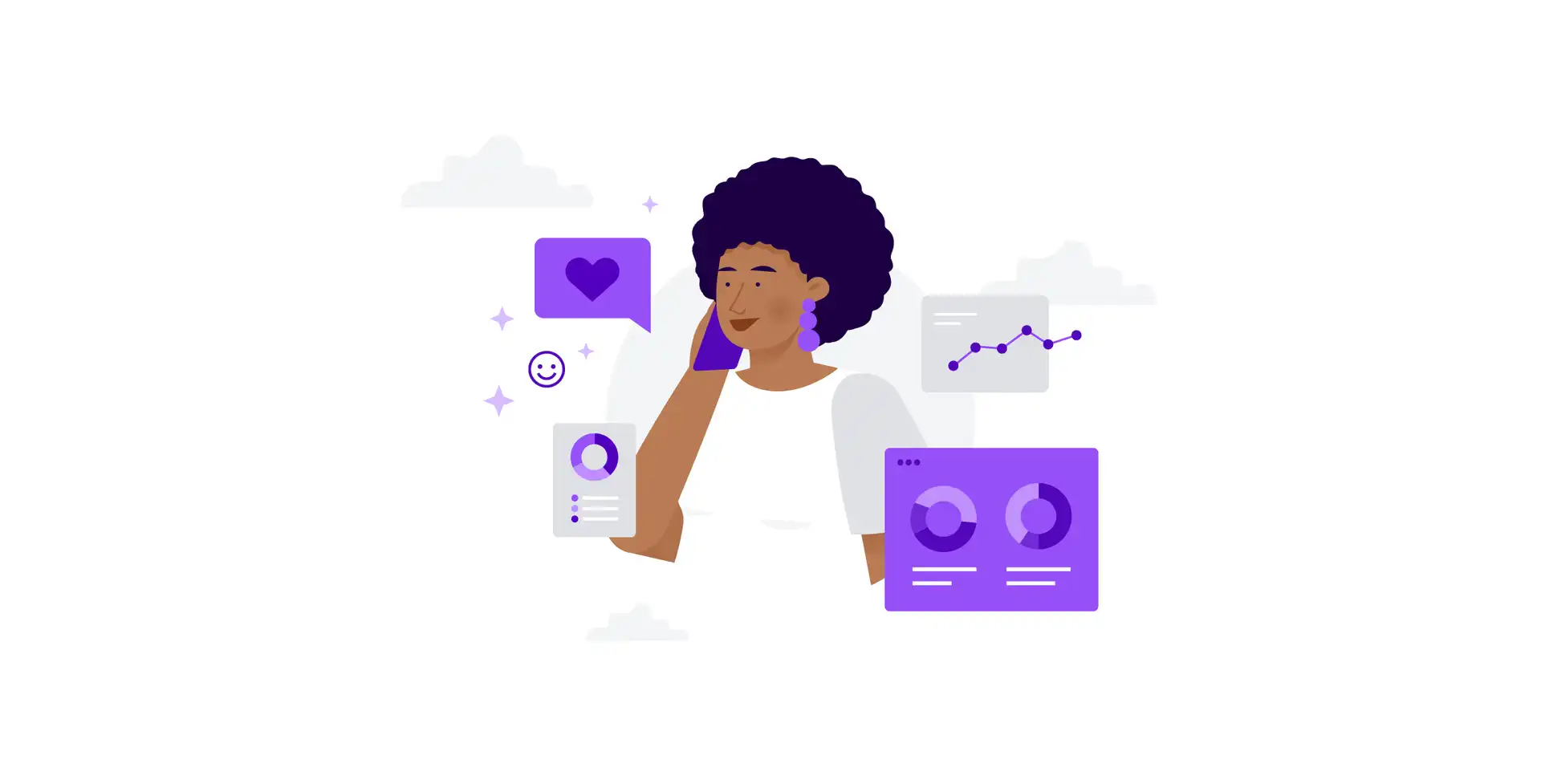10 KPIs that improve customer satisfaction in call center service

By Lídia Dias
0 min read

Discover a list of the ten most important KPIs to watch to improve customer satisfaction in call center service.
Customer satisfaction (CSAT) is critical: it can determine the success or failure of any company, product, or service. Not only because it’s cheaper to keep an existing, happy customer than find new ones, but also because loyal customers tend to become brand advocates, attracting more new potential customers than any campaign.
The call center is usually the frontline of the customer’s experience and often may be the only human interaction with the company. Therefore, it’s imperative to accurately measure key performance indicators (KPIs) that can help you improve customer satisfaction in your call center, increase brand loyalty, and exceed customers’ expectations.
10 KPIs to watch and improve customer satisfaction in call center service.
The importance of analyzing contact center metrics when assessing the effectiveness and efficiency of call centers is obvious. However, not all KPIs are as reliable indicators of customer satisfaction and the overall customer experience as others.
Below is the list of KPIs to watch while building a customer experience strategy and improving customer satisfaction on your call center.
1. First call resolution.
First call resolution (FCR) represents the percentage of calls in which the agent completely addresses the customer’s needs without having to transfer them or call them back. Companies should allocate the funds necessary to train agents effectively, invest in knowledge bases, and give agent incentives to improve FCR. Additionally, skills-based routing and IVR systems will ensure that the most appropriate agent receives the call, increasing FCR.
2. Percentage of calls blocked.
The percentage of callers that received the busy tone when they call. A company can decrease the percentage of calls blocked by ensuring that they have a call queue system to handle periods of large call volumes. Contact center software that offers callers the option to leave a voicemail when all agents are busy ensures that they do not ever receive a busy signal or waste time in a lengthy call queue.
3. Average time in queue.
The total time callers wait in call queues before an agent responds, divided by the total number of calls answered by agents. Reduce the average time in queue by adequately staffing to your contact center, ensuring that more agents are working during high volume call times, and providing agents effective tools to handle callers waiting in a queue on time. Leverage real-time analytics so agents can prioritize the calls they answer from the queue based on length of time waiting, customer value to the company, or other pre-defined rules.
4. Average after-call work time.
The time an agent spends completing a transaction after the caller has disengaged. Contact center software that integrates with your company’s CRM, back-office solutions, and helpdesk will allow your agents to access and update information in all your systems from one single interface. This will reduce average after-call work time and also ensure that your entire team will have access to comprehensive, accurate information at any time.
5. Service level.
The percentage of calls answered within a specified number of seconds. Contact center software that visually displays this information in real-time to both agents and managers can increase service level by increasing the team’s awareness of how they perform on this KPI.

2021 global Talkdesk contact center KPI benchmarking report
6. Call abandonment rate.
The percentage of customers who hang up before reaching an agent. Companies can optimize call abandonment rates by providing agents with real-time analytics to prioritize the calls they answer from the queue based on the length of time waiting. They can also allow the customer the option of leaving a voicemail when all agents are busy.
7. Employment turnover rate.
The percentage of agents who leave to work elsewhere. Managers can decrease employee turnover rate and improve customer satisfaction in call center service by ensuring that agents are well trained and closely monitored. Contact center software that provides call monitoring, call recording, and call barging allows managers to effectively monitor their team’s quality of customer service provided, ensuring that agents are well trained and happy.
8. Average speed of answer.
The average time it takes for the call to be picked up by the call center’s automatic call answer (ACD). This can be decreased by ensuring that your company utilizes contact center software effectively and efficiently ACD. Additionally, ensuring that the algorithm used to route calls to the appropriate agent is always up to date is an important step in reducing the average speed of answers.
9. Average handle time.
The elapsed time from when an agent answers a call until the agent disconnects. The average handle time (AHT) can be decreased by thoroughly training agents, ensuring that the call is routed to the most appropriate agent using skill-based routing, using call center software that integrates with helpdesks and CRMs, and continuously monitoring for agent inefficiencies.
10. Adherence to schedule.
Measures how efficient an agent is in handling calls. It can be maximized by proactively identifying inefficiencies, increasing the agent knowledge base to solve problems more effectively, and providing integrations with helpdesk and CRM software so that all pertinent information is readily available.
Keep your caller satisfied.
Customer service is the frontline of most customer interactions. That said, a customer-centric approach and a good CX strategy are supported in metrics, not guessing.
Measuring KPIs associated with customer satisfaction should be the main objective of any manager looking to improve customer support and interactions with customers.
It is imperative to ensure each caller has a positive experience with your company. Each call has revenue potential, every caller can relay their experience with your company on social networks, and each interaction has the potential to make your business more or less profitable. You only have one chance to make a first impression, and that first impression can make or break your company.
This blog post was originally published in January 2013, and updated in October 2021.







